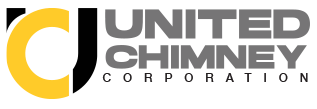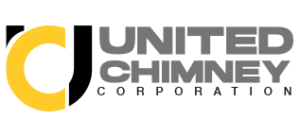At United Chimney, we know homeowners often have questions about maintaining their chimneys and fireplaces. Here are some of the most frequently asked questions we receive, along with clear, expert answers to help you better understand your chimney care needs.
1. How often should I have my chimney inspected?
We recommend scheduling a chimney inspection at least once a year, as advised by the National Fire Protection Association (NFPA). Even if you don’t use your fireplace often, annual inspections are crucial to identify potential issues like creosote buildup, blockages, or structural damage.
2. How do I know if my chimney needs cleaning?
Some signs your chimney needs cleaning include:
- Strong, smoky odors near your fireplace.
- Excessive soot or creosote buildup inside the fireplace or chimney.
- Smoke backing into your home when using the fireplace.
- Difficulty starting or maintaining a fire.
If you notice any of these signs, it’s time to schedule a professional cleaning.
3. What is creosote, and why is it dangerous?
Creosote is a flammable byproduct of burning wood that sticks to the walls of your chimney. Over time, it can accumulate and increase the risk of chimney fires. Regular cleaning removes creosote buildup and keeps your home safe.
4. Do gas fireplaces need cleaning and inspection?
Yes! While gas fireplaces produce less soot than wood-burning ones, they can still accumulate dust, debris, or residue that affects performance. Regular inspections also ensure gas lines, burners, and pilot lights are functioning safely and efficiently.
5. What’s the difference between Level 1 and Level 2 chimney inspections?
- Level 1 Inspection: A basic visual inspection of accessible parts of the chimney, ideal for routine maintenance.
- Level 2 Inspection: Includes a visual inspection and a video scan of the chimney interior. This is recommended when buying or selling a home, after a chimney fire, or if there are suspected issues.
6. What causes water leaks in chimneys?
Water leaks can be caused by:
- Cracked or deteriorated masonry.
- Damaged or missing chimney caps.
- Worn or improperly installed flashing (the seal between the chimney and roof). Waterproofing services and timely repairs can prevent further damage.
7. What is chimney relining, and when is it needed?
A chimney liner protects the interior of your chimney and helps vent smoke and gases safely. You may need relining if:
- The existing liner is cracked or deteriorated.
- You’re switching to a different fuel type (e.g., from wood to gas).
- Your chimney is unlined, which is unsafe and non-compliant with modern safety standards.
8. Do I need a chimney cap?
Yes, a chimney cap is highly recommended! Chimney caps prevent:
- Water damage from rain or snow entering your chimney.
- Animal and debris blockages caused by nests or falling leaves.
- Embers from escaping and landing on your roof or nearby structures.
9. How can I tell if my chimney needs repairs?
Look out for these common warning signs:
- Cracks or gaps in the masonry or mortar.
- Leaning or tilting chimneys.
- Rust on the damper or firebox.
- Water stains on walls or ceilings near the fireplace.
- Excessive creosote or soot buildup despite regular cleaning.
If you notice any of these, schedule a professional inspection as soon as possible.
10. Are there solutions for drafts or smoke issues in my fireplace?
Yes! Common solutions include:
- Cleaning the chimney to remove blockages.
- Installing or repairing the chimney damper.
- Adding a mechanical draft system for homes with taller chimneys or poor airflow.
Our technicians can assess the issue and recommend the best solution.
11. Is chimney maintenance necessary if I rarely use my fireplace?
Absolutely. Even if you rarely use your fireplace, your chimney can still accumulate debris, experience water damage, or develop structural issues. Annual inspections help ensure your chimney is safe and ready to use when you need it.
12. How much does chimney maintenance cost?
The cost of chimney maintenance varies depending on the service (e.g., inspections, cleaning, repairs). Contact United Chimney for a personalized quote tailored to your home’s needs.
13. How can I prepare for my chimney service appointment?
To ensure a smooth process:
- Stop using your fireplace at least 24 hours before the appointment to allow it to cool.
- Clear the area around your fireplace for easy access.
- Inform the technician of any specific concerns or issues you’ve noticed.
14. Why should I choose United Chimney for my residential chimney care?
At United Chimney, we combine expertise, advanced technology, and a customer-first approach to provide reliable, high-quality chimney services. From inspections and cleaning to repairs and custom fireplace solutions, we make chimney care simple and stress-free for homeowners.
Have More Questions?
If you didn’t find the answer to your question here, feel free to contact United Chimney today! Our team is happy to provide personalized advice and professional solutions for all your chimney care needs.



